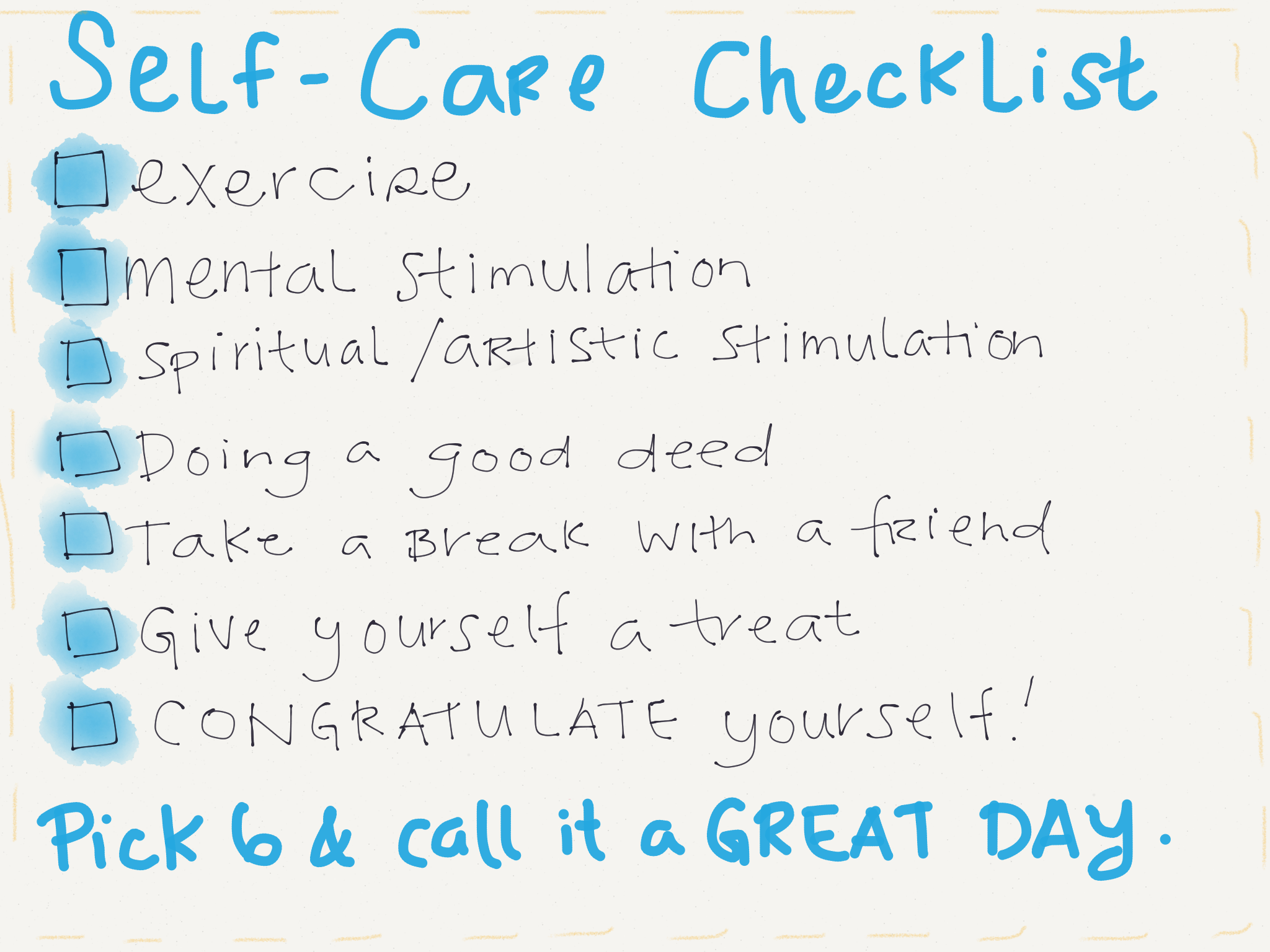The Community Manager's Self-Care Checklist
It’s no secret that community professionals burn out constantly.
I’ve written about it a few times.
Other community professionals, like Jessica Fish, write about it.
There have been countless conference panels and talks that discuss the topic in-depth.
It’s also no secret that people like frameworks to deal with burnout.
We can talk about burnout forever, but we need a framework for taking care of ourselves so we don’t have to get to the dark places that burnout takes us. If you take care of yourself as often as you can (hopefully every day), burnout becomes much less likely.
In this post, I want to share a framework, based on Steven Koch's book, The 80/20 Principle, that will help you care for yourself in the ways that make most sense to you. I have been following this framework each day, loosely but consistently, over many years. As a result, I feel lighter, more capable, and ready to tackle more challenges that come my way. And when I fall off this framework, I feel that too.
Here's the simple checklist, illustrated by yours truly as an act of artistic stimulation today.
All of this starts with clear boundaries and knowing and loving yourself (not small feats). I’ll give you a little primer on this topic before delving into the self-care checklist. I'm no expert; I’m figuring out my own boundaries and giving myself grace daily. But I'd be wrong not to note that self-care starts much deeper than with a checklist of actions.
Setting Your Personal Boundaries
I've had to learn boundaries the hard way: By letting people cross them and then falling apart. Discussions of boundaries have become much more prevalant over the last few years due to social media and therapy speak becoming part of the popular lexicon, but we still struggle to put them in place. Work is a place where boundaries are needed more than any other. You have the right to personal boundaries, consent, and to say no if something doesn't add value to your life. You do not have to do anything at all. You don't have to tiptoe around people's egos if it doesn't serve you in any way. Here are expert Mark Manson's tips for building boundaries.
Many of us have poor boundaries. Most people won't cross them, but all it takes is one person - your boss, co-worker, partner, community member - to ignore those boundaries and send you into a tailspin. We are caretakers of people and connectors often because we have spent some portion of our lives feeling neglected, ignored, or disconnected. Our empathy runs deep. This is beautiful, but it can be dangerous if left unchecked.
And if you're not communicating your boundaries, you can't fully blame others for crossing them (it's not your fault, but you must understand your role so that you can stop it from happening again).
Some further thoughts from Threads based on a recent coaching call in our CMJ Community about how to set and maintain boundaries for community managers and membership owners:
The Community Manager Daily Self-Care Checklist
Try to do at least six of these per day.
Exercise
Treat yourself
Do a good deed
Spend at least 30 minutes with a friend (your cat counts)
Find time for mental stimulation (you can combine 4 and 5 if your friends are smart!)
Find time for artistic or spiritual stimulation
Congratulate yourself
What each of these items entails is highly individual. So, sit down and identify the times in your life when you've felt happiest and what you were doing during those moments. You'll see natural patterns emerge.
You can start to see your own self-care options by creating a Happiness Island Brainstorm.
I actually created a “Happiness Islands” brainstorm for myself. It’s messy, but it gets the job done, since I like structure…
For me, the happiest times involved lots of trips, clear goals, trying new activities, meeting different kinds of people, hiking, writing, reading, and squeezing my dog. So I find space in my life for those things regularly now.
I'll throw out ideas for you to get your brain moving in the right direction.
Exercise
Walk your dog a little longer than usual
Go for a run
Take a fitness class
Walk to a farther bus stop than usual
Do yoga at the park
Turn music up and dance at home
Take a walking meeting
Treat Yourself
Get a massage
Go to bed early
Hug your cat
Buy a new shirt
Cook yourself a meal (treating yourself to crappy fast food doesn't count)
Get a haircut
Watch an episode of Parks and Rec
Do your nails
Read a book
Wander in a new place
Do a Good Deed
Smile at someone on the street
Go the extra mile for a community member in need
Bake cookies and give them to your neighbors
Volunteer
Pick up trash on the street when you notice it
Refill the Brita filter when it's empty (seriously... do this.)
Spend Time with a Friend
Call a friend on the phone... yes, call them.
Spend 30 purposeful minutes with your dog where you're fully present
Meet for a happy hour glass of wine
Have friends over for dinner
Attend a meetup or event in your town
Mental Stimulation
Have a great conversation with an old friend (two birds, one scone)
Reach out to a community member and ask about an area of their expertise
Read a book
Read a new magazine
Listen to a podcast
Go to the library and browse the shelves
Artistic or Spiritual Stimulation
Meditate
Draw
Paint
Dance
Sing
Organize an event
Write for fun
Knit a mohair sweater (why not?)
Congratulate Yourself
This one is simple. Take a moment to remind yourself that you've done enough and are doing your best.
And if you can only do three or four of these things today, congratulate yourself twice: once from you and once from me. You've done your best. You should be proud.




